
‘Nuff said

Economy | 08:55 – 05/30/2024

Baghdad – Mawazine News
The Parliamentary Finance Committee announced today, Thursday, the completion of the study and analysis of the 2024 budget tables, and while it confirmed that there are no appointments in it, it indicated that the government is in the process of opening 100 hospitals until the beginning of next year.
Committee Chairman Atwan Al-Atwani said, in a statement received by Mawazine News, that “the Parliamentary Finance Committee has completed its study and analysis of the general budget tables for the year 2024 and is now in the process of preparing the report that will be presented to the House of Representatives,” pointing out that “the budget tables are not an opportunity to distribute… The financial allocations to institutions are a review of what was spent in recent years and the drawing up of a new spending policy.”
He added, “The committee is trying to chart a new path for spending by analyzing previous budgets, and in the report that will be submitted, all the observations that accompanied the 2023 budget will be presented.”
He pointed out, “There is an increase in current spending amounting to 13 trillion dinars over the 2023 budget, offset by a decline in investment spending.”
Regarding the appointments in the 2024 budget, Al-Atwani confirmed that “there are no appointments in the current year’s budget because there is a legal article in the previous budget that suspended all appointments,” noting that “the operating budget constitutes approximately 165 trillion dinars.”
He pointed out, “This year we are approaching more than a hundred investment projects, and with regard to the health sector, there are more than a hundred hospitals that will be opened during this year and early next year.”
PoliticsParliamentary Finance CommitteeBudget 2024
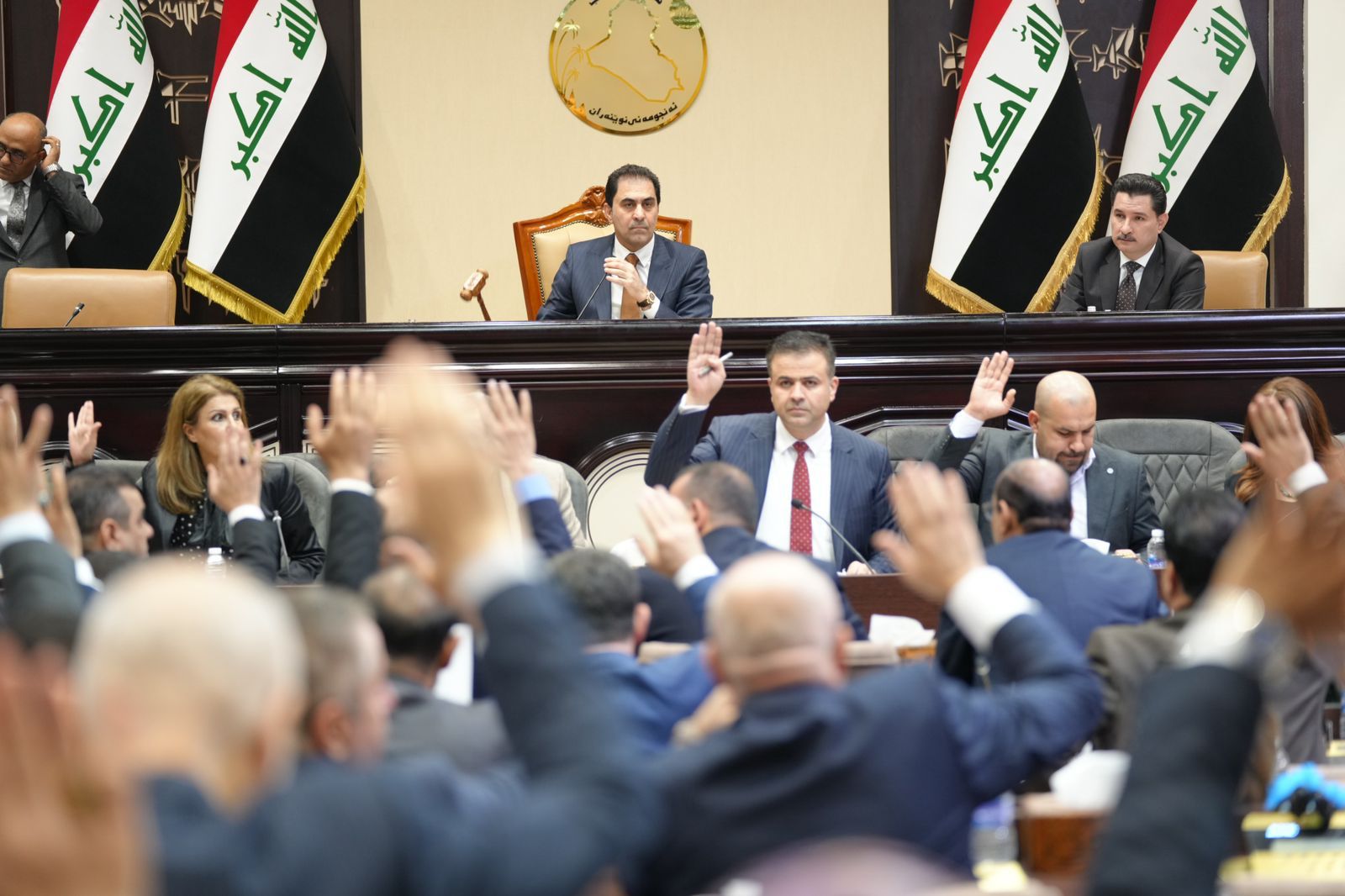
2024-05-30 08:16ShareFont
Shafaq News/ The Parliamentary Finance Committee said on Thursday that it or the House of Representatives has no intention of returning the budget schedules for 2024 to the federal government.
Committee member Hussein Moanis explained to Shafaq News Agency, “Last Monday, the Parliamentary Finance Committee hosted the Ministers of Finance and Planning to discuss many topics related to the budget schedules, including answering the questions of the committee members regarding increasing the financial allocation to the ministries and reducing the funds allocated to the governorates.”
He added, “The two ministers answered the questions that were directed to them during their hosting in the committee,” noting that “the increase in financial allocation to the ministries came due to the presence of retained funds for the ministries from last year.”
Mu’nis stressed that “the project funds allocated to the governorates can be disposed of this year.” He pointed out that “the Parliamentary Finance Committee will work to make financial transfers from the ministries to the governorates, in addition to reducing the percentage of the deficit present in the budget tables.”
A member of the Finance Committee confirmed that “there is no intention to return the budget schedules to the government, and that the House of Representatives will discuss the budget law schedules and then they will be approved in a special session.”
The day before yesterday, Tuesday, the coordination framework stressed, during a meeting attended by Prime Minister Muhammad Shiaa Al-Sudani, the necessity of approving the budget schedules to achieve the interests of citizens and support the economic situation.
The 2024 budget, according to what Prime Minister Muhammad Shiaa Al-Sudani announced yesterday, Sunday, amounts to 211 trillion dinars, and employee salaries for the year 2024 amount to 62 trillion dinars, while the 2023 budget amounted to 199 trillion dinars and employee salaries amounted to 59 trillion dinars.
According to Al-Sudani, the revenues of the 2024 budget are estimated at “144 trillion and 336 billion dinars, while expenditures amount to 210 trillion and 936 billion dinars, while the deficit is 63 trillion and 599 billion dinars.”
Kurdistan WomenMasrour BarzaniBaghdad
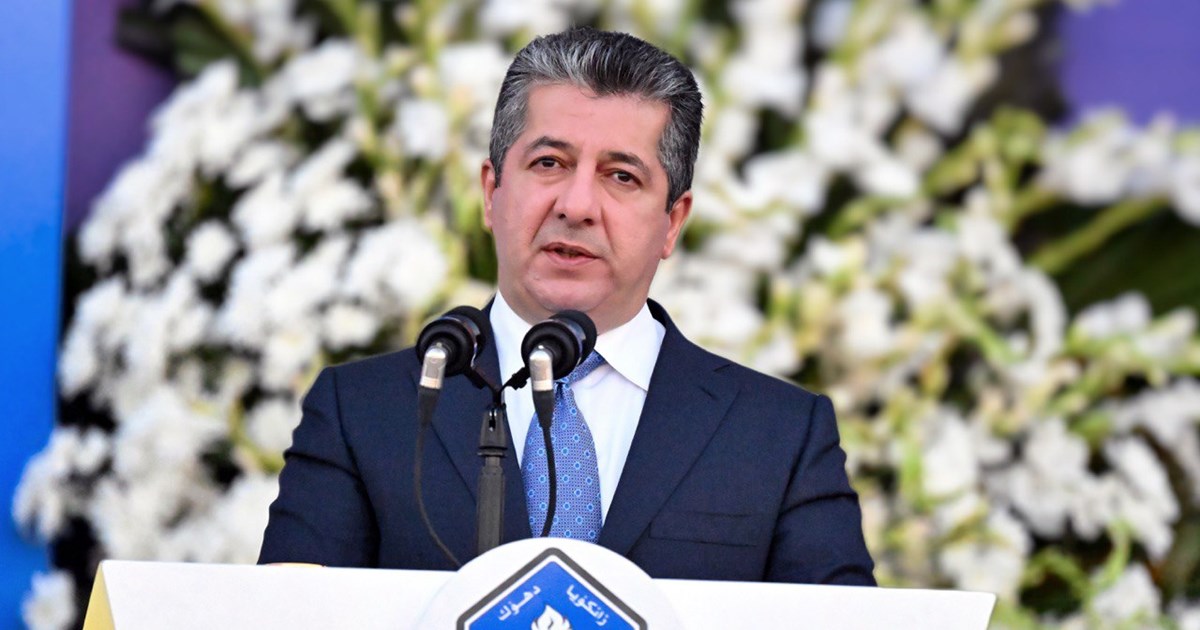
2024-05-30 10:31ShareFont
Shafaq News/ The Prime Minister of the Kurdistan Regional Government, Masrour Barzani, expressed, on Thursday, his hope to hear good news for citizens, following a series of bilateral meetings with the Prime Minister of the Federal Government, Muhammad Shia al-Sudani, and leaders of a number of political forces in Baghdad.
Barzani said, in an interview with reporters in Baghdad: “We have performed all our duties, and we have made every effort not to involve salaries with political issues, and Baghdad now remains to fulfill its responsibilities, and I have hope of hearing good news for the citizens.”
Masrour Barzani added, “The relevant authorities will hold their meetings in Baghdad next week, to discuss the issue of resuming oil exports from the fields of the Kurdistan Region.”
In this context, Masrour Barzani wrote, in his blog post on the
He continued: “I also urged him (Amiri) to continue supporting the Kurdistan Regional Government’s right to receive regular payments and a fair budget.”
Earlier, Al-Sudani and Masrour Barzani stressed the continuation of meetings and constructive dialogue. With the aim of addressing it in accordance with the law and the provisions of the Constitution, in the best interest of the country.
Barzani arrived, on Thursday morning, in Baghdad to hold discussions with Al-Sudani and a number of senior officials in the federal government, in addition to meetings with leaders and commanders of political forces, regarding the latest developments on the political and security arenas in Iraq, and to emphasize resolving the outstanding issues between the Kurdistan Region and the federal government. In particular, securing the salaries of the citizens of the Kurdistan Region and ensuring their financial rights and entitlements.

29th May 2024 in Investment, Iraq Banking & Finance News, Iraq Industry & Trade News, Politics
From the Iraq Britain Business Council (IBBC):
Professor Frank Gunter launches a new white paper on de dollarisation of Iraqi economy
Professor Frank Gunter publishes a new paper commissioned as part of a series by IBBC’s advisory council on the challenges of de-dollarisation for Iraq.
The Advisory Council members and IBBC members have actively contributed to the paper in the past 4 months. It will be presented online on the 18th June in a webinar and in person at the Spring Conference on 2nd July. The Arabic translation will be published soon.
Previous advisory papers include 2020, ‘Iraq 2020: Country at the Crossroads‘, ‘Corruption Worse Than ISIS: Causes and Cures Cures for Iraqi Corruption’, ‘Seaports and Airports of Iraq: Rules Versus Infrastructure’ and ‘Privatization of State-Owned Enterprises’.
Professor Gunter provides an analysis of the drivers of impact on the dinar exchange rate and examines how best to deal with the parallel market of dinars to dollars. He outlines the practical policy initiatives that should reduce the gap between the official and parallel exchange rates in the medium-term.
In particular he lauds the Government of Iraq on its commitment to tackle corruption and to modernise the banking system in one fell swoop but warns of the pressure on the dinar exchange rate as budgets are overstretched and the new banking recipients (state banks) receive the liquidity to enable the economy to perform.
He writes ‘All three of these forces – the anti-corruption effort, the banking liberalization, and the lavish 2023-2025 budget – will create challenges for the management of the dinar exchange rate. One could argue that over the last two decades the Government of Iraq (GoI) had little control over its exchange rate; that exchange rate policy was determined by other sectors of the political economy in Iraq. But even if this is true, the level of the exchange rate and changes in that level are believed by many Iraqis and foreigners as providing valuable insight into the quality of economic management in Iraq. This importance is exemplified by the current efforts to de-dollarize the Iraqi economy while there is excess demand for dollars. This excess demand is shown by a parallel exchange rate of roughly 1500 dinars per dollar compared to the official exchange rate of 1310 dinars per dollar.
An important cause of this exchange rate gap is that the GoI, with the strong encouragement of the U.S. Federal Reserve, is attempting to reduce the use of the U.S. dollar in both Iraq’s internal economy and its external transactions. Since 2003, the U.S. dollar has facilitated economic growth in Iraq by providing a widely accepted medium of exchange for purchases as well as a reliable store of value for savings. In the long run, whether de-dollarization will have a significant adverse impact on the Iraq economy will depend on how rapidly the GoI can increase both the efficiency of alternative mediums of exchange and the perceived security of alternative stores of value.’
The high-level discussions underscored the imperative of addressing longstanding issues between Erbil and Baghdad through adherence to the Iraqi constitution.

Kamaran Aziz 51 Minutes
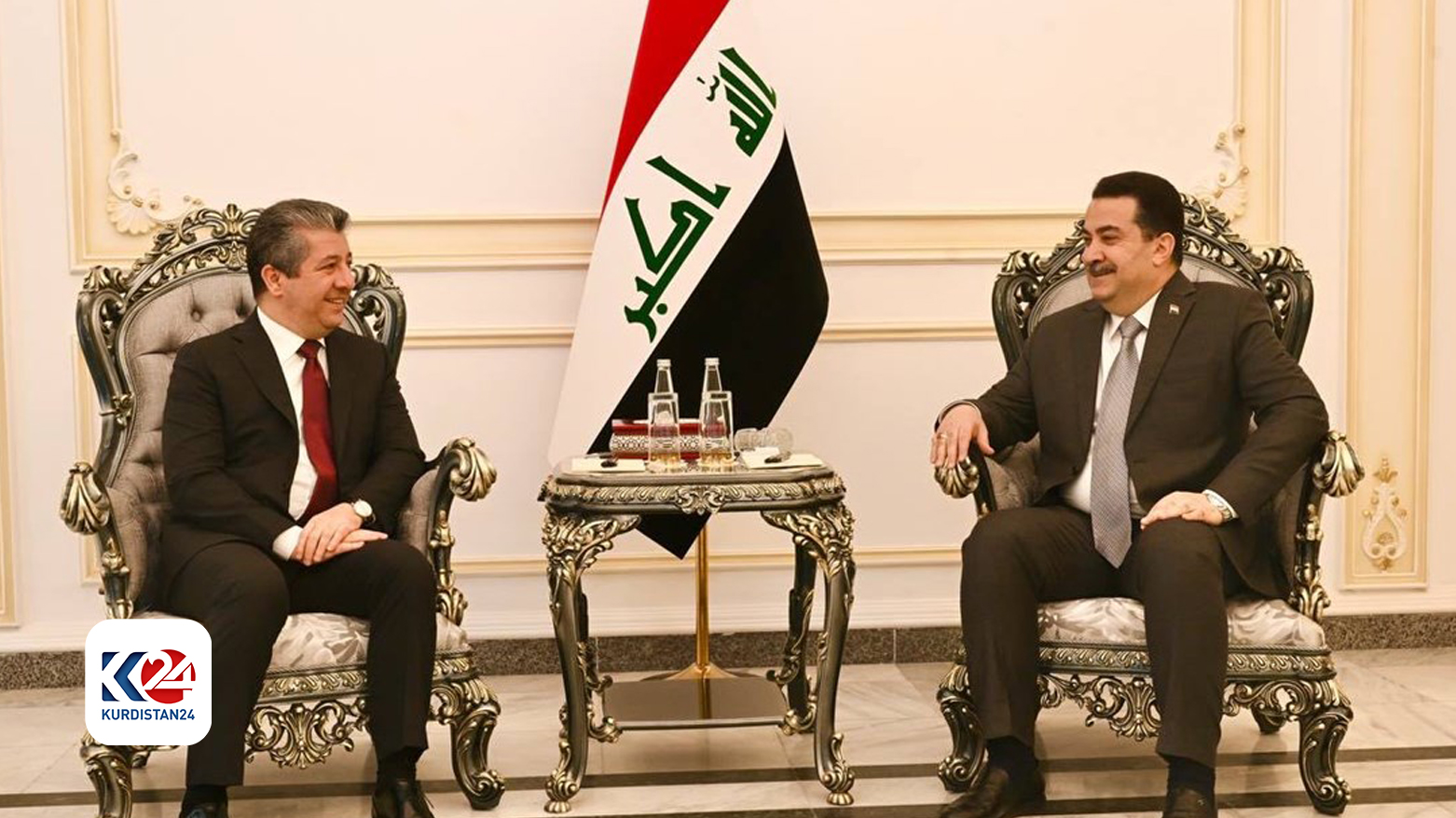
KRG PM Masrour Barzani (l) and Iraq’s PM Mohammed Shia al-Sudani (R). (Photo: Kurdistan 24)
Kurdistan PM Masrour Barzani Baghdad VisitIraqs prime minister Mohammed Shia al-SudaniKRG-Federal Iraq
ERBIL (Kurdistan24) – In a significant diplomatic engagement, Prime Minister Masrour Barzani of the Kurdistan Regional Government (KRG) met with Iraqi Prime Minister Mohammed Shia al-Sudani in Baghdad on Thursday, May 30.
Read More: PM Masrour Barzani to meet Iraqi leaders in Baghdad for key discussions
The high-level discussions underscored the imperative of addressing longstanding issues between Erbil and Baghdad through adherence to the Iraqi constitution.
A statement from the KRG highlighted that the talks encompassed the broader situation in Iraq and the necessity of constitutional solutions to the regional disputes.
Both leaders emphasized the importance of maintaining a constructive dialogue aimed at resolving issues to benefit all Iraqi communities and citizens.
Prime Minister Barzani’s visit to Baghdad involved not only his meeting with Prime Minister Sudani but also consultations with other federal officials and key political leaders, marking a step forward in fostering cooperative relations between the Kurdistan Region and the central government.
Furthermore, Prime Minister Masrour Barzani arrived in Baghdad on Thursday morning to engage in discussions with Iraqi Prime Minister Mohammed Shia al-Sudani, other federal government officials, and leaders of Iraqi political parties.
Read More: PM Masrour Barzani in Baghdad “to bring renewed certainty”
At the start of his visit, Barzani met with Iraqi National Security Advisor Qassem Al-Araji, and the two addressed questions from journalists during a press conference.
“It is very normal for us to come to Baghdad to meet and discuss with all responsible officials to resolve the remaining issues. Our first meeting was with Mr. Qassem Al-Araji, the Iraqi National Security Advisor, who is our dear brother,” Barzani said.
“We will meet with Iraqi Prime Minister Mohammed Shia al-Sudani and other officials of the Iraqi government and political parties to discuss some of the problems that remain between Erbil and Baghdad,” he added.
Read More: PM Masrour Barzani meets Iraqi National Security Advisor to enhance cooperation
Another purpose of his visit is to “strengthen the good relations that are now on their way.”
On Tuesday, May 14, the Iraqi Ministry of Finance deposited 168 billion dinars, and on Wednesday, May 15, deposited 443 billion dinars as the April salary for some ministries and institutions of the Kurdistan Region in the Erbil Branch of the Central Bank of Iraq.
However, the salaries for the Peshmerga Ministry and security forces have not yet been sent.
“We will discuss this, and it will be resolved, God willing,” Barzani stated.
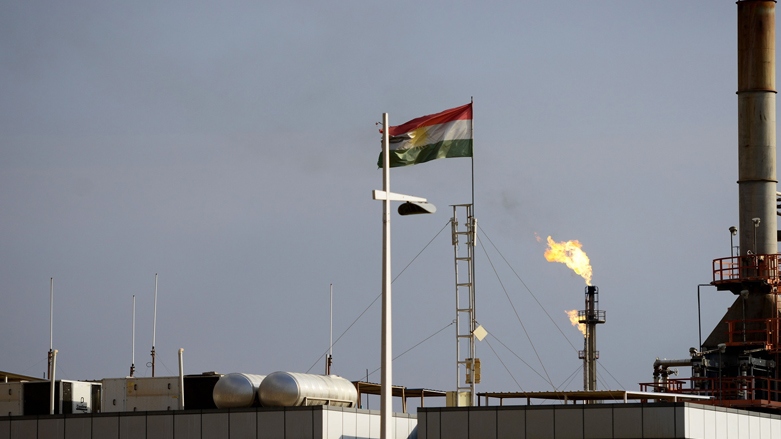
Economy News – Baghdad
The Kurdistan Oil Industry Association announced that its companies did not receive $1 billion in wages for their oil production between October 2022 and March 2023, but does not necessarily demand payment in cash before export resumes.
Association spokesman Miles Caggins said any agreement should consider how this amount is paid and guarantees corporate dues in the future.
Kagins welcomed the Federal Oil Ministry’s invitation to resume meetings on resuming the export of Kurdistan Region oil, noting that it is waiting to schedule within the coming days.
“One of the positive points of oil production in the Kurdistan Region is to provide a second route for oil access to global markets,” he said.
He pointed out that “the markets have been troubled in the past due to the complexities of the Ukraine war, along with the security situation in the Red Sea, so Iraq will be stronger with export ports.”
Kaguins’ remarks came at a time when the Ministry of Natural Resources in the Kurdistan Region expressed its readiness to visit Baghdad “next week” to resolve problems related to the resumption of exports.
A spokesman for the Kurdistan Oil Industry Association considered that the Federal Ministry of Oil has made its decision to invite the Ministry of Natural Resources and Companies to a meeting in Baghdad due to several factors.
In this context, he explained that the Ministry of Oil and the Federal Government in Baghdad recognize the importance of oil production throughout the country “so that Iraq can achieve maximum growth.”
“There must be oil production in the south in Basra, as well as in Maysan, in central Iraq, and of course in the Kurdistan region,” he said.
He also pointed to “pressure” exerted by the administration of US President Joe Biden and officials in the foreign ministries, the Treasury and energy on Iraqi Prime Minister Mohammed Shiaa of Sudan and the Iraqi government to resume the export of oil to the Kurdistan Region.
“We heard that there is external pressure from other oil-producing countries that have sent a message of encouragement to Baghdad,” a spokesman for the Kurdistan Oil Industry Association is sold.
On May 28, the Federal Ministry of Oil called on the Ministry of Natural Resources and international companies operating the fields located in the Kurdistan region to hold a meeting in Baghdad “as soon as possible.”
She explained in a statement that the purpose of the meeting is “to discuss and deliberate on the matter and reach an agreement to accelerate the reproduction and resume the export of oil produced through the Turkish port of Ceyhan and according to the quantities established in the budget law.”
“Clear about the terms”
On corporate terms, Miles said: “We have been very clear about our terms. First, we want to make sure that any changes and amendments to the contracts include agreements with the Kurdistan Regional Government as well as the international oil companies and the Iraqi Ministry of Oil.”
The second condition is “making sure the money is paid, and knowing how and when we will receive our previous wages in addition to our future wages.”
“We also want to maintain the same trading conditions that we currently have under joint production contracts with the Kurdistan Regional Government,” a spokesman for the Kurdistan Oil Industry Association continued.
“However, as we announced in our recent statement, the member companies of Epicor (the Association) are open and ready to make changes to our contracts to achieve the goal of exporting oil via the pipeline,” he continued.
On the points that companies are willing to adjust, he said: “I can’t speak for any of them. But in principle, I would say that it’s important for our companies to have three preconditions.”
Regarding the nature of these conditions, he explained: “Any changes to the contracts must be with the approval of the Kurdistan Regional Government and by agreement, and ensure the payment of past and future wages, which we would like to maintain the same financial conditions, but may differ in the amounts of payments, whether the money was paid by Erbil or Baghdad.”
Miles Caggins noted that in some cases there may be some taxes that Baghdad is interested in. We don’t know, but we will consider and negotiate these proposals at the appropriate meeting.”
Regarding how optimistic he is about a solution, he said: “I want to be conservatively optimistic about a solution soon.”
20 views
Added 2024/05/30 – 11:02 AM
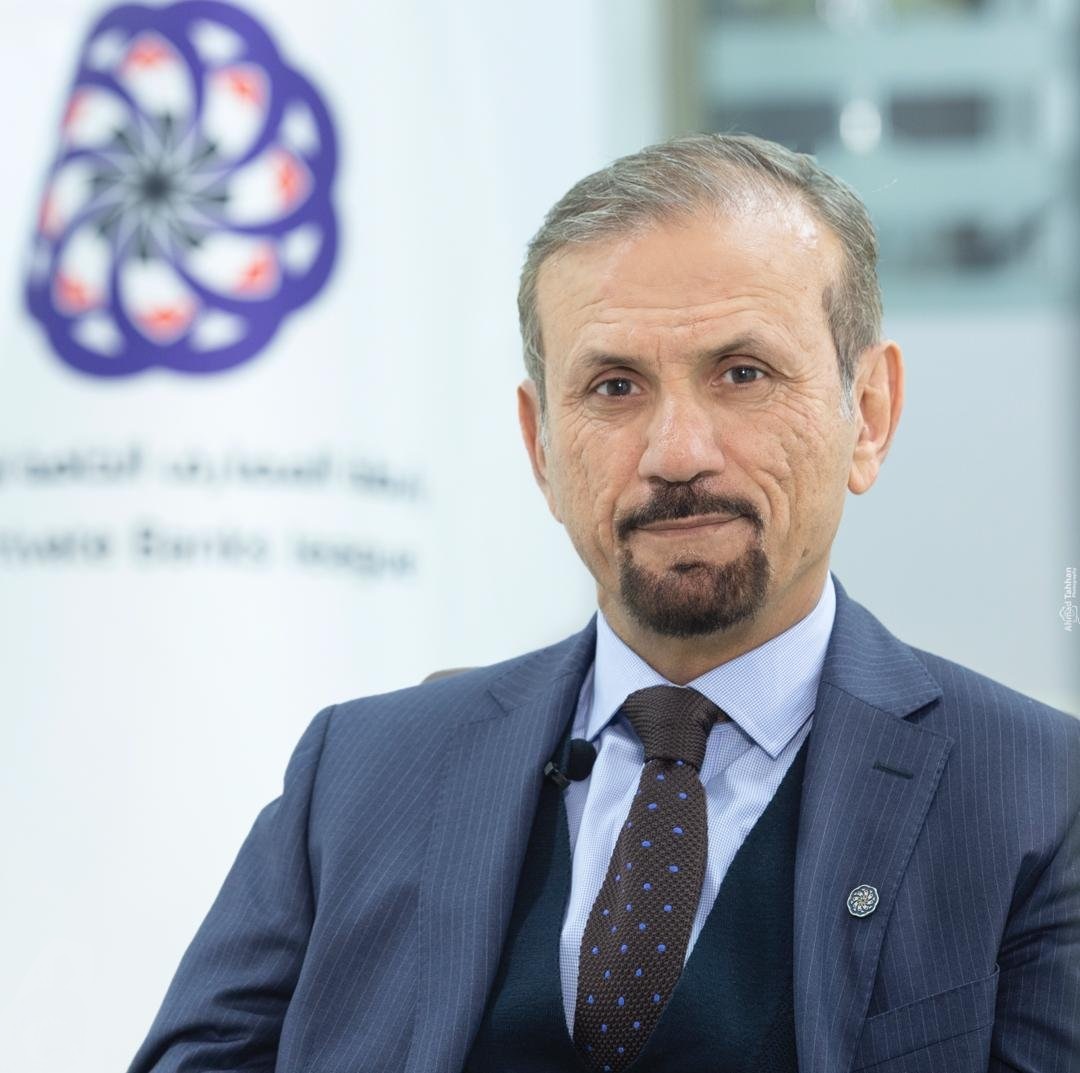
President of the Association of Iraqi Private Banks, Wadih Al-Hanalal
Economy News – Baghdad
The President of the Association of Iraqi Private Banks, Wadih Al-Hannalal, confirmed on Wednesday the quest to open more prospects for work with correspondent banks, while noting that the joint committee with the US side on the banking sector will begin its work next month.
Al-Hanlal said, in a statement reported by the official news agency, and seen by “Economy News”, that “the Prime Minister’s recent visit to the United States of America had a great impact on the understanding with the American side,” noting that “it is important in this understanding to form the committee, which will start its first meeting at the beginning of next June.”
He added, “We are very optimistic about this committee, which will deal with correcting the situation and returning the banking sector as much as possible to what it was, including dealing with correspondent banks and other clear points of the Central Bank of Iraq, including compliance and training of human cadres, including the requirements related to money laundering.”
He added that “what was mentioned above is adopted by correspondent banks, in addition to the standards of disclosure and transparency of sources of funds, and these are alphabets that are recognized by banking, and we see all seriousness and we are very confident in the direction of the Prime Minister and the Central Bank of Iraq to do so,” pointing out that “we are currently working in the banking sector to open more prospects for working with correspondent banks.”
281 views
Added 2024/05/29 – 4:07 PM
Political| 09:45 – 30/05/2024

Prime Minister Mohamed Shiaa Al-Sudani expressed on Thursday his appreciation of the distinctive results of Iraq at the West Asian Athletics Championship held in Basra, stressing that the reception of international events reflects the state of stability in the country.
Al-Sudani said in a tweet on his website on the X platform,: “A greeting to the champions of the athletics as they reap the distinguished results in the West Asian Women’s and Men’s Championship, which is hosted by the province of Basra with the participation of several Arab and Asian countries.”
He added that “hosting Arab and international sports events, in Baghdad, Basra and our beloved governorates, reflects the state of stability witnessed by our country in various fields, and enhances government support for the plans and programs that we directed to improve the sports sector in general.”
Political| 10:25 – 30/05/2024

Baghdad – Mawazine News
Sudanese Prime Minister Mohamed Shiaa announced on Thursday the opening and operation of 200 power stations throughout the regions and cities of Iraq.
This The Sudanese Media Office said in a statement that the latter opened and operated “48 electric power transmission stations for high pressure, and 152 electricity distribution stations throughout the governorates of Iraq, within the first phase of the package of projects to solve the bottlenecks of electricity transmission and distribution networks in Baghdad and a number of governorates.
Articles of interest for the rebuilding of Iraq and its currency
Rasimal Somali News
To Put Mosul on the Global Map
"We're all just walking each other home" ~ Ram Dass
Yang Pernah Mbuat Aku Bingung
@IraqiThoughts
Iraq, politics, development
The latest news on WordPress.com and the WordPress community.